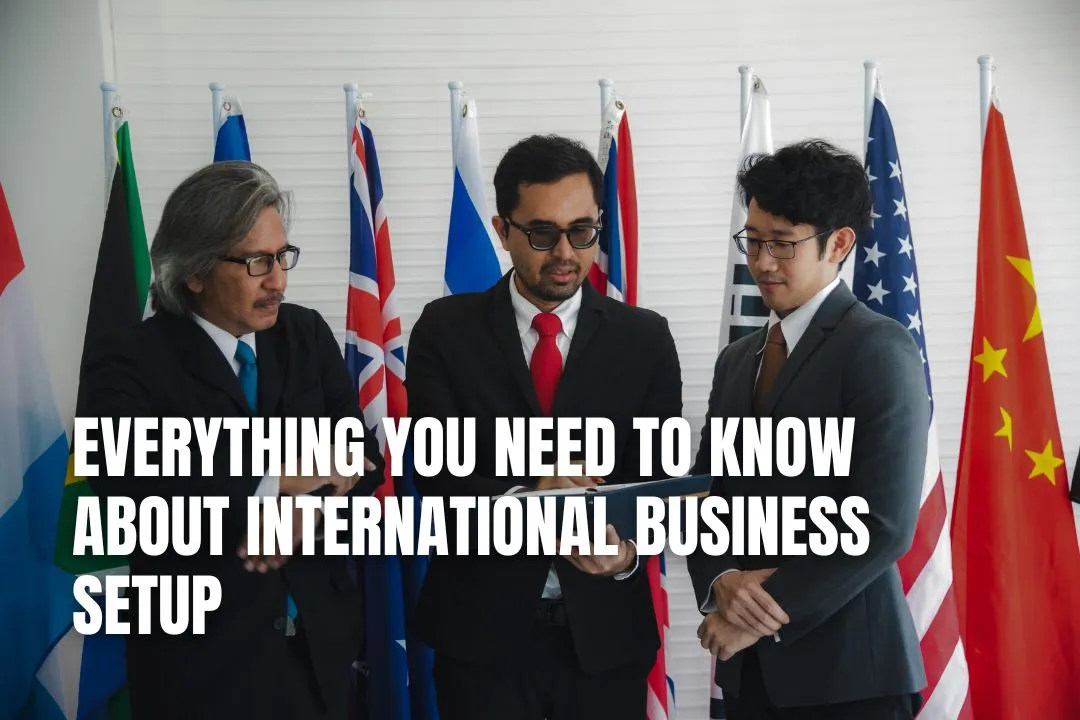
Editorial Disclaimer
This content is published for general information and editorial purposes only. It does not constitute financial, investment, or legal advice, nor should it be relied upon as such. Any mention of companies, platforms, or services does not imply endorsement or recommendation. We are not affiliated with, nor do we accept responsibility for, any third-party entities referenced. Financial markets and company circumstances can change rapidly. Readers should perform their own independent research and seek professional advice before making any financial or investment decisions.
It starts as a thought you can’t quite shake. Maybe you’ve built something solid at home and feel there’s more potential. Maybe someone overseas asked about your product, and you caught yourself imagining your logo on a shop window halfway across the world. That’s how it begins, quietly, then suddenly it’s all you can think about.
If you are thinking about expanding abroad and you feel excited, it’s the right time to jump into it. New markets. New people. New possibilities. But the further you look into it, the more you realise it’s not just about opening a new office somewhere sunny. It’s about entering a system you don’t yet understand, with its own rules, paperwork, and unwritten codes of doing business.

When people talk about “expanding internationally,” they make it sound like a big, celebratory milestone. They don’t talk about the 2 a.m. emails with lawyers trying to figure out which business structure will protect you best. Or the days lost trying to understand a country’s tax system, only to discover there’s a local holiday and offices are closed.
It’s not just filling in forms. It’s navigating an environment that has its own way of thinking. That’s why the smartest founders bring in help early. The right partner knows the terrain, the regulations, the cultural gaps you haven’t even considered. Without them, it’s too easy to waste months and money, learning the hard way. If you want the process to feel less like guesswork, working with professionals in international business setup can put you on steady ground from the first day.
Behind every official stamp and signed document lies a bigger challenge: making your business fit the local context. That could mean:
It’s a mix of legal compliance and cultural fluency, and both matter equally.
The first step is getting the audience to trust you. You can’t just show up in a new market and expect people to buy from you because you’ve done well somewhere else. Locals want proof that you’re invested, that you’re not just here for quick wins.
This can mean hiring locally, building partnerships with established businesses, showing up at industry events, and making your brand a familiar name in the right circles. It’s slow work, but it’s the work that keeps you in the market for the long term.
One of the easiest traps is underestimating the cost of the first year. Beyond the registration fees, there’s marketing, rent, travel, staffing, product adaptation, and sometimes unexpected compliance costs. And even if sales start rolling in, repatriating profits might come with its own tax hurdles.
You’ll need more cash than you think. You’ll also need the patience to know that early sales aren’t the only measure of success.
Every market has its own pace, style, and expectations. You need to know the etiquette, as at some markets, people value long meetings before any deal is signed. Somewhere you’ll have to reach fast and make a quick decision. Some cultures are heavy on formalities; others prefer casual relationships.
For all the complexity, there’s a thrill in seeing your business take root somewhere new. Hearing customers talk about your brand in another language. Getting that first big client overseas. Knowing that you’ve built something that crosses borders and works in different environments.
It’s not just about growth, it’s about resilience. A business that operates in multiple markets can weather storms better than one that relies on a single economy.
Beyond the obvious paperwork, the biggest challenges involve navigating unfamiliar legal and tax systems, which can be complex and time-consuming. There are also cultural gaps and unwritten rules of business that can easily be overlooked without local expertise. It is crucial to get professional help early to avoid costly mistakes.
Paperwork is just the first step. True success requires adapting your business to the local context. This includes rewriting contracts to be valid in local courts, adjusting product packaging to suit cultural norms, and changing your pricing strategy to align with local spending habits and income levels.
Building trust is essential and cannot be rushed. Key strategies include hiring local staff, forming partnerships with established local businesses, and actively participating in industry events. This shows you are invested in the community for the long term, not just for quick profits.
It is very common to underestimate the costs involved. You need to budget for more than just registration fees. Plan for marketing, rent, travel, staffing, and potential product adaptations. It is also wise to have a financial cushion for unexpected compliance costs and to understand the tax implications of repatriating profits.
Absolutely. Despite the complexities, expanding internationally builds resilience. A business operating in multiple markets is better protected against economic downturns in a single country. It also brings the immense satisfaction of seeing your brand succeed and connect with customers across different cultures.